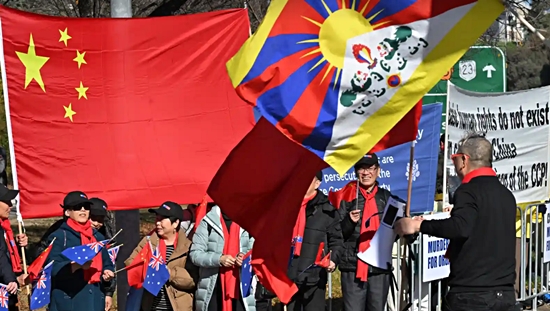
“Uyghur, Tibetan, Hongkonger, and Chinese human rights groups rightly fear that renewed trade and economic ties, a key agenda of this visit, will compel governments like Australia to overlook human rights issues,” says Kyinzom Dhongdue, a representative of Amnesty International Australia (“Labor urged to put human rights record before trade as Chinese premier visits Canberra,” The Guardian, June 16, 2024). Uttering “statements of concern” as trade deals proceed unhindered is not doing the job.
Human rights advocates have called on [Australian Prime Minister] Anthony Albanese to place China’s human rights record ahead of economic and trade discussions in his meeting with China’s second most powerful leader on Monday.
They said it was time for Australia’s Labor government to demand concrete action from China in addressing human rights complaints against it as “statements of concern” were not achieving results.
The prime minister will hold the annual leaders dialogue with Premier Li Qiang in Canberra. Human rights campaigners and critics of Chinese policy have planned protests out the front of Parliament House during the visit….
Amnesty International wrote to the Australian government before Li’s visit pushing for the immediate and unconditional release of the Chinese-Australian academic and writer Dr Yang Hengjun, who in February received a suspended death sentence from a Chinese court, and the release of a Hong Kong-Australian, Gordon Ng, who was convicted under new security laws. Australian officials said they have been repeatedly blocked from having contact with Ng.
Yang’s supporters in Australia said he was a “political prisoner who has been sentenced to death because of his writings in support of individual freedoms, constitutional democracy and rule-of-law” and, after more than five years in a state security detention centre, they believed he was being moved to a permanent prison. They urged Albanese to use his meeting with Li to “directly demand that Yang be released on medical parole or otherwise be transferred to safety in Australia, in accordance with basic humanitarian principles”.
Although the story is about Australia’s foreign policy decisions and trade negotiations and Australian nationals being left to rot in Chinese prisons, the circumstances and choices are the same in many other countries. Governments everywhere must decide whether to ignore the Chinese Communist Party’s prolific abuses of the innocent, including of their own nationals, in order to get trade deals with China.





